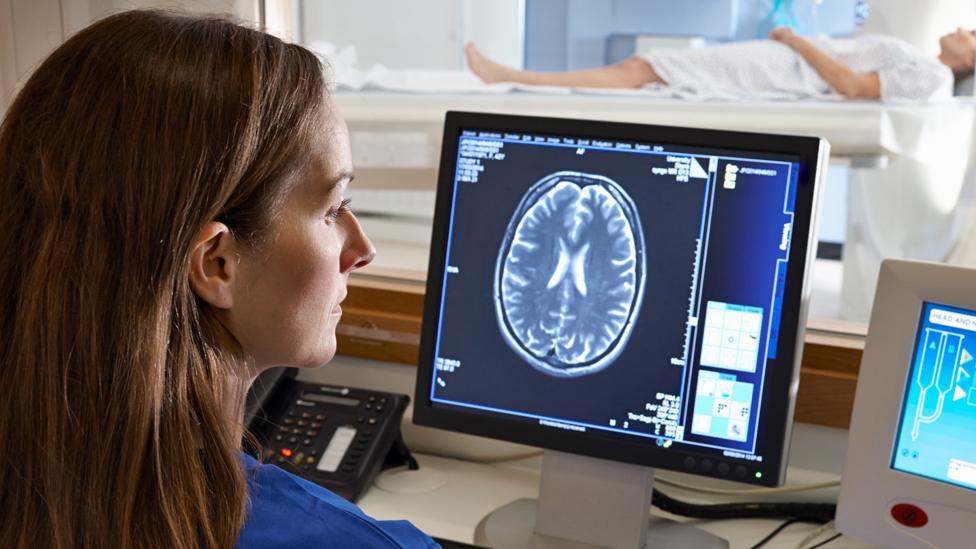Striking radiographers across the West under 'huge pressure'
- Published
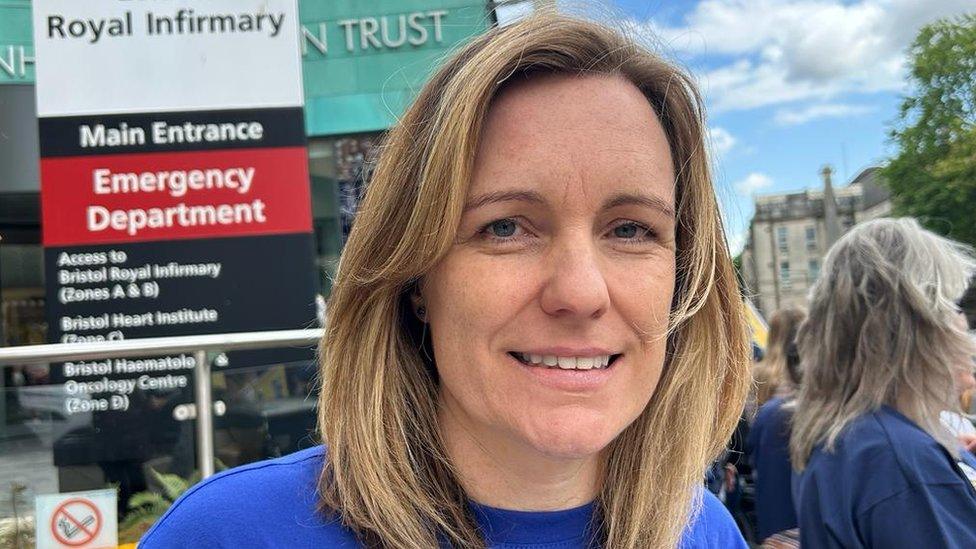
Ms Duguid said staff are "leaving in their droves"
Radiographers say they are "under pressure" and in a workforce crisis, as they stage a 48-hour strike over pay.
Workers in Bristol, Somerset and Wiltshire took to the picket lines at 08:00 BST on Tuesday.
The Government's 5% pay award was rejected and further talks were called for after other public sector workers were offered more.
Health Secretary Steve Barclay said he wanted to see an end to strikes so NHS staff could reduce waiting lists.
Therepeutic radiographer Emily Duguid said the industrial action is not just about pay, that staff are also leaving "in droves".
"That's putting increased pressure on the remaining workforce and we're not able to deliver the safe, quality service that patients deserve," she said.
"There are more patients than there are staff able to deal with them safely, and that puts a huge amount of pressure on the team.
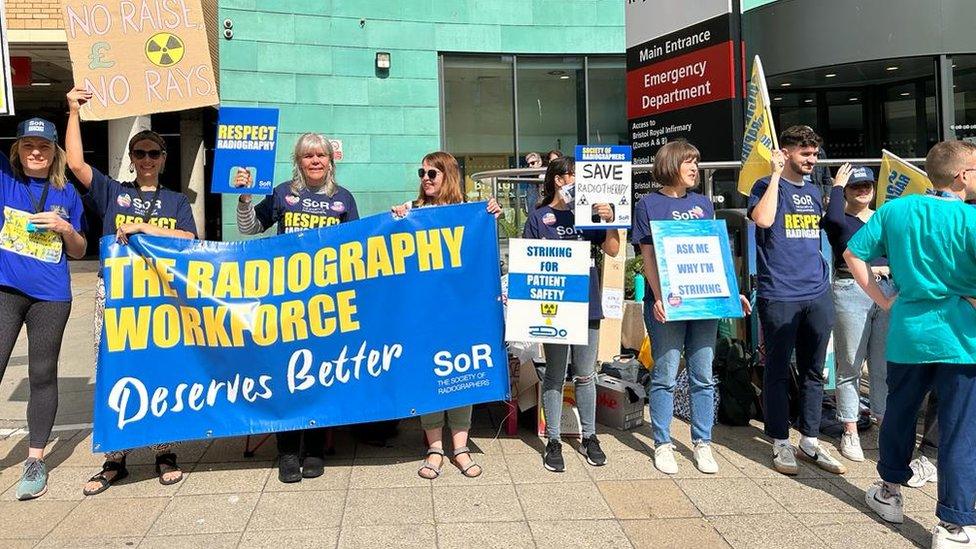
The Government's pay award was rejected by union members
"We've seen gifted, brilliant, compassionate team members leave because they can't cope with the stress.
"One in two people will get cancer in their lifetime. Forty per cent will have radiotherapy at some point so this really does affect everybody and is a problem everybody should be worried about."
Nick Lowry, who is also a therapeutic radiographer in Bristol said the strike is the result of the government "kicking the can down the road".
"That's a combination of not recruiting enough staff, not paying them correctly, not providing enough funding to the NHS and specifically to Radiographer services," he said.
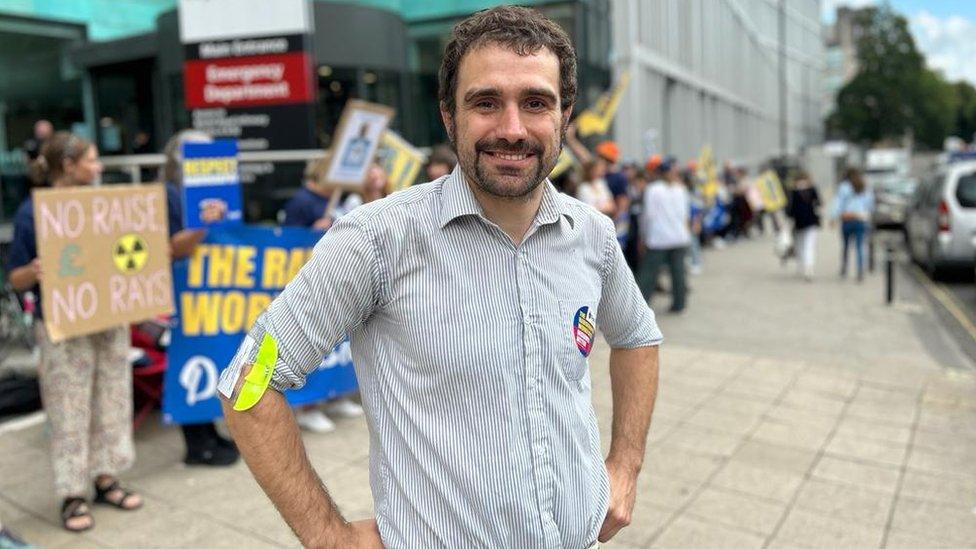
Mr Lowry said striking is a last resort and is only being done out "of necessity"
"Nobody takes striking like this lightly. We only got into this career because we care about people and are doing this [strike] out of an absolute last grasp of necessity."
Great Western Hospitals NHS Foundation Trust, Royal United Hospitals Bath NHS Foundation Trust, University Hospitals Bristol and Weston NHS Foundation Trust all have members taking part in the strike.
Vice President of the Society and College of Radiographers Katie Thompson in Wiltshire said the NHS is currently in a "workforce crisis".
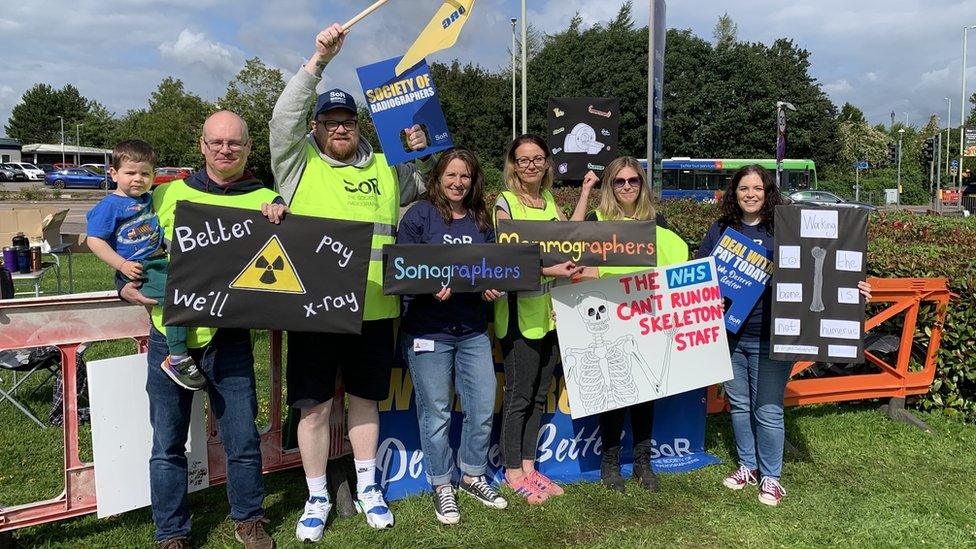
Radiographers in Wiltshire also took to the picket lines
"We have a 10 per cent workforce shortfall which is causing stress amongst radiographers and leading them to do a lot of hours and overtime," she said.
"We are frustrated with the government. We don't have enough people to do the jobs."
The Society of Radiographers (SoR) has acknowledged the strike will cause "massive disruption" but said that radiographers were taking to picket lines due to "massive workforce issues" facing the sector.
'Majority accept pay rises'
Health and Social Care Secretary Steve Barclay said he wanted to see "an end to disruptive strikes" so the NHS could focus on cutting waiting lists.
"The majority of unions on the NHS Staff Council voted to accept the government's fair and reasonable offer of a 5% pay rise for 2023-24, alongside two significant one-off payments totalling at least £1,655, putting more money in their pockets now.
"Over a million NHS staff, including radiographers, are already benefiting from that pay rise. The NHS also recently published the first ever NHS Long Term Workforce Plan, to recruit and retain hundreds of thousands more staff."

Follow BBC West on Facebook, external, Twitter, external and Instagram, external. Send your story ideas to: bristol@bbc.co.uk , external
Related topics
- Published25 July 2023
